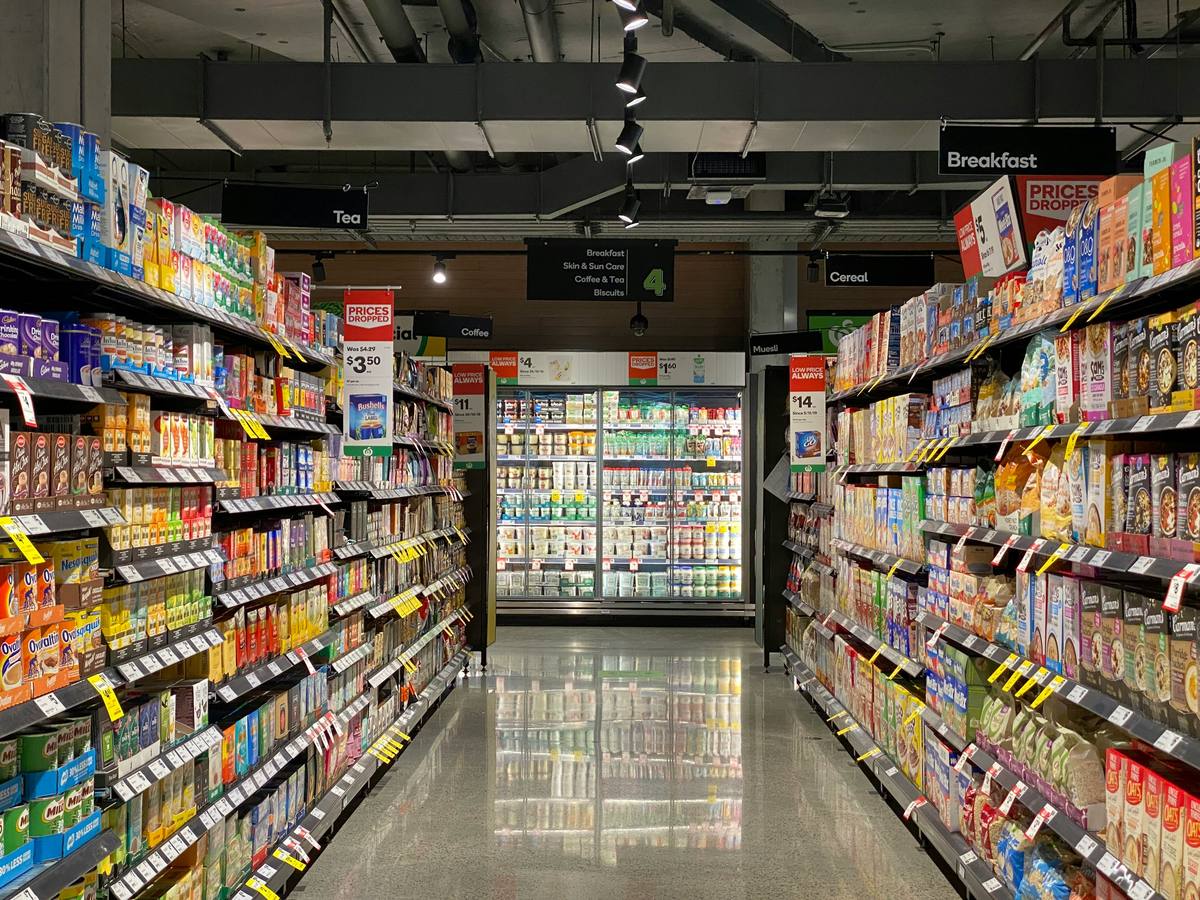Kickstarting Your Grocery Business Journey
Diving into the grocery industry can be an exhilarating adventure filled with possibilities and potential pitfalls. The initial step involves conducting a meticulous market analysis, identifying your target clientele, and determining what unique offerings can set your store apart in a competitive landscape. Crafting a comprehensive business plan is not just beneficial; it's imperative for securing funding and guiding your venture towards success. Location, often overlooked, plays a pivotal role in accessibility and can greatly influence customer footfall. Equally important is forging relationships with reliable suppliers to ensure your shelves are always stocked with fresh, appealing products. Embrace technology by implementing a robust inventory management system to streamline operations and enhance customer satisfaction.

The Complexities of Starting a Grocery Business
Embarking on the journey of starting a grocery business is filled with excitement and potential but comes with its fair share of challenges. One of the first hurdles entrepreneurs face is understanding the market dynamics and consumer behavior. It's essential to recognize what products your target customers are looking for and how they prefer to shop. This knowledge forms the backbone of how you stock your shelves and the variety you offer. Additionally, location plays a critical role in determining the flow of customers; choosing the wrong spot can be detrimental to your business's success.

Navigating Regulatory Requirements
Another significant challenge lies in navigating the maze of regulatory requirements. Grocery stores are subject to various health and safety regulations, which can vary widely from one location to another. Understanding these laws and obtaining the necessary permits before you open your doors is crucial. This process can be time-consuming and sometimes frustrating, but it's indispensable for operating legally and ensuring customer safety. Failure to comply can result in hefty fines or even closure, highlighting the importance of diligence in this area.

Finding Reliable Suppliers
Success in the grocery industry also hinges on building strong relationships with reliable suppliers. You need partners who can provide high-quality products at competitive prices and deliver them consistently and on time. This aspect of the business requires excellent negotiation skills and a keen eye for spotting favorable deals without compromising on quality. Establishing trust with suppliers means having a backup plan when unexpected shortages occur, ensuring that your shelves are never empty. Remember, your choice of suppliers directly impacts your product offering and, by extension, customer satisfaction.
Setting Up an Efficient Inventory System
An often underestimated aspect of how to start successfully is setting up an efficient inventory system. Mismanagement here can lead to overstocking or running out of popular items, both of which hurt your bottom line. Implementing a robust inventory management system helps track stock levels in real-time, predict demand more accurately, and make informed purchasing decisions. Technology plays a pivotal role in this process, enabling smoother operations and better customer service. Ultimately, an effective inventory system is key to managing waste and maximizing profitability.

Creating a Marketing Strategy That Stands Out
In today's highly competitive market, creating a marketing strategy that makes your grocery store stand out is vital. This involves more than just running promotions; it's about building a brand that resonates with your target audience. Social media, email marketing, and community engagement are all powerful tools that can help elevate your presence in the market. Understanding what makes your store unique and communicating that effectively to your customers will help draw them in. Without a coherent marketing strategy, even the best-stocked grocery store can go unnoticed.

Boost campaigns with 250+ editable templates. Save, reuse, and wield design tools for business growth.
Try it for FREE!Leveraging Technology for Competitive Advantage
The use of technology cannot be overstated in gaining a competitive edge in the grocery business sector. From online ordering systems to customer loyalty programs powered by apps, technology enhances shopping experiences and streamlines operations. Employment of data analytics allows for personalized marketing strategies, enhancing customer retention rates significantly. Moreover, integrating eCommerce platforms caters to the rising trend of online shopping, expanding your customer base beyond physical boundaries. Staying abreast of technological advancements ensures that your grocery business remains relevant and accessible.
Maintaining High Standards of Customer Service
Maintaining high standards of customer service is paramount for any successful grocery business. In an era where online reviews can make or break a business, ensuring every customer leaves satisfied is essential. Training staff to be friendly, knowledgeable, and responsive goes a long way toward establishing a loyal customer base. Additionally, addressing complaints swiftly and efficiently shows that you value customer feedback and are committed to providing outstanding service. A focus on exceptional customer service not only attracts repeat business but also garners positive word-of-mouth referrals.
Utilizing Design Tools Like Desygner
Incorporating professional design into your marketing materials can significantly impact the perceived value of your grocery business. Utilizing tools like Desygner allows you to create visually appealing designs without needing extensive graphic design skills. Whether it's designing flyers for promotions or customizing social media posts to engage with your audience better, Desygner offers user-friendly solutions that elevate your branding efforts effortlessly. The right visual elements resonate more effectively with consumers, making it easier to communicate key messages and stand out from competitors--proving invaluable in crafting an attractive brand identity.
Wrapping Up Your Grocery Business Journey
As we conclude our guide on embarking upon the grocery business venture, it's essential to underscore that success in this field requires more than just passion. It necessitates a blend of strategic planning, understanding market dynamics, and fostering genuine relationships with both suppliers and customers. The steps outlined throughout this article serve as your roadmap, guiding you through the complexities of starting a grocery store from scratch.
Innovation and adapting to changing consumer behaviors are also crucial in standing out in the competitive grocery landscape. Embracing technology can enhance your operational efficiency and improve customer satisfaction. Remember, the goal is not only to start but also to sustain and grow your business by being responsive to the market's needs.
Here are key takeaways to always keep in mind:
- Research extensively and understand your target market.
- Create a solid business plan that encompasses financial forecasting.
- Select a suitable location that attracts heavy foot traffic.
- Build relationships with reputable suppliers for quality inventory.
- Invest in marketing to create awareness about your store.
- Utilize technology for inventory management and customer service.
- Incorporate sustainability practices to appeal to eco-conscious consumers.
- Consider using Desygner for designing marketing materials effortlessly.
To truly make a mark with your grocery business, remember that every detail counts -- from the layout of your store to the way you engage with customers online and offline. It's a challenging journey but equally rewarding. For those looking to elevate their branding and marketing materials, consider signing up at Desygner. Their intuitive tools can help bring your creative vision to life, ensuring your grocery store not only starts strong but thrives in today's competitive market.


